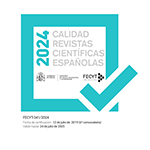“Didattica acquisizionale” e cortesia linguistica in italiano L2
Abstract
Handling the pragmalinguistic and sociopragmatic rules governing the use of address forms and the modulation of illocutionary force is extremely demanding for Italian L2 learners. Most of these rules are acquired very late, and even proficient learners of the target language can hardly cope with them. Not only are the linguistic forms intrinsically difficult, but also the input is not of help, as native speakers tend to present non-native speakers with a pragmatically simplified variety of the target language. Violating the rules governing the linguistic expression of politeness can become a source of hindrance to learners’ smooth participation in the L2 community. Furthermore, a basic form of discrimination could stem from native speakers’ use of simplified input, and the adoption of the simplified variety by non-native speakers could result in a strategy of cultural accommodation but even in an implicit legitimization of that discrimination. On these bases, and supported by our data, we argue that a syllabus designed according to the principles of the so called “didattica acquisizionale” should train in using linguistic forms of politeness from the very beginning of the instructional program, even against any evidence of teachability.Downloads
Article download
License
In order to support the global exchange of knowledge, the journal Cuadernos de Filología Italiana is allowing unrestricted access to its content as from its publication in this electronic edition, and as such it is an open-access journal. The originals published in this journal are the property of the Complutense University of Madrid and any reproduction thereof in full or in part must cite the source. All content is distributed under a Creative Commons Attribution 4.0 use and distribution licence (CC BY 4.0). This circumstance must be expressly stated in these terms where necessary. You can view the summary and the complete legal text of the licence.










